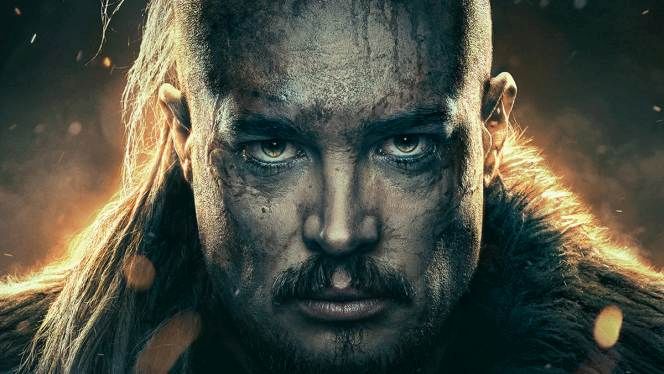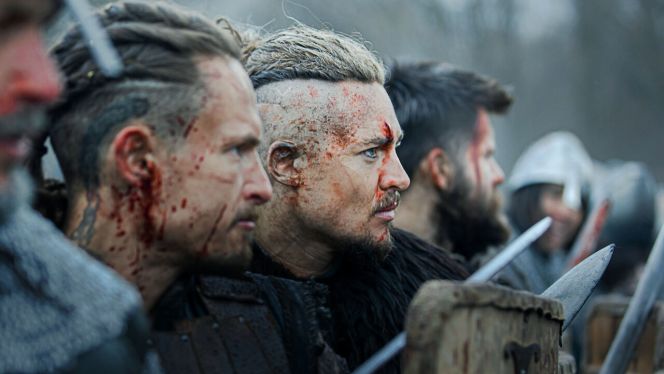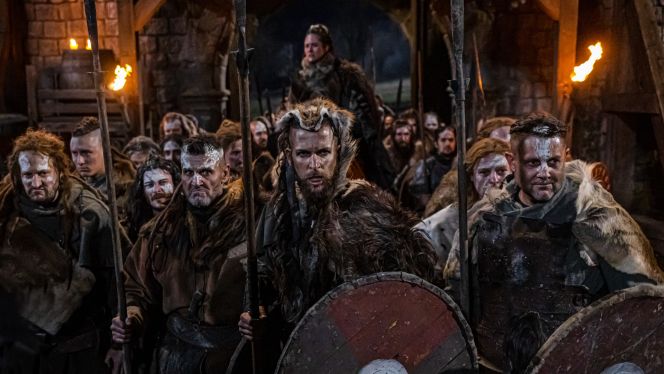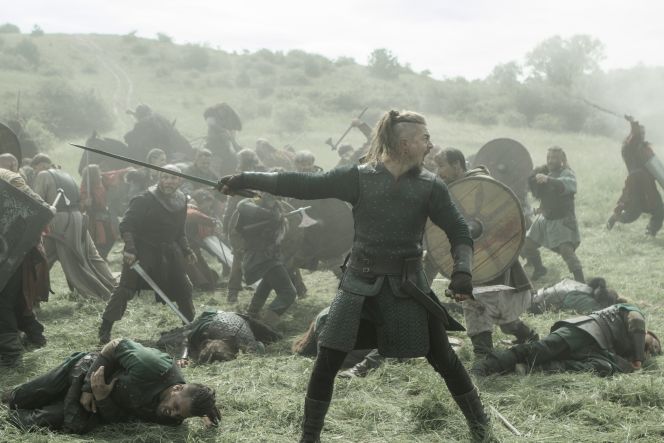MOVIE REVIEW – The Last Kingdom: Seven Kings Must Die, the series finale of The Last Kingdom, has finally arrived on Netflix. Fans have long awaited the conclusion to the story of Uhtred, but is the film a fitting end to the series? The story follows what happens after the king’s death, when the power struggle becomes inevitable. Was the film a worthy conclusion to the Saxon hero’s Viking adventures, or was it just a superfluous addition that added nothing new to the story? As a dedicated fan who loved the series, I was a little disappointed with the film, but I can’t say it was all bad. Let’s see why.
The Last Kingdom: Seven Kings Must Die follows on from the original series, with Alexander Dreymon returning as Uhtred of Bebbanburg. The composer of the film is once again Eivor, whose work in the series has proven to be a perfect fit for the world of monarchs and warriors. The story focuses on the power struggles in England and the inner struggles of the royal family, but will the film manage to end the series in a truly memorable way?
Power games and bleeding hearts
The Last Kingdom: Seven Kings Must Die begins after the death of King Edward, who died at the end of the series and is succeeded by his son Aethelstan (Harry Gilby). Aethelstan tries to secure his place on the throne by force, but this earns him many enemies. Uhtred, weary from the never-ending fighting, tries to keep his promise to swear allegiance to Edward’s son. Uhtred hopes that by setting Aethelstan on the right path, he can prevent the bloody power struggle that is about to begin.
In this final episode, Uhtred and his allies struggle to maintain the balance of power as more enemies and traitors emerge from their own camp. The protagonists’ political intrigue and the human side provide the film’s thrilling moments. The loyalty between the characters and the depth of emotion in the story make the world of power games and battles all the more compelling.
Throughout the film, Uhtred is forced to confront his own inner demons and the question of loyalty, which has been repeatedly questioned in his life. As time passes, he must realise that power alone is not enough to bring real change to people’s lives, and the final battle will bring him face to face not only with external enemies, but also with his own internal struggles.
And the music composed by Eivor deepens the dramatic and tense moments of the film, making the characters’ struggles almost palpable to the viewer. The The Last Kingdom: Seven Kings Must Die not only provides a gripping and twisting story, but also conveys a deeper message about the nature of power, human relationships and the inner strength that the characters must discover within themselves.
Heroes and anti-heroes: plot strengths and weaknesses
Unfortunately, the biggest weakness of the film was the script. Over the five seasons of the series, some so many threads and conflicts could not be wrapped up in a single film. The film thus became overcrowded and superficial, not giving enough room for characters and drama. The story was often rushed and disjointed, lacking tension or surprises. The dialogue was also weak, with many clichéd or didactic lines from the characters. The film couldn’t decide whether it wanted to be a historical epic or an action film, and so it became neither.
Nevertheless, the scenario has some strengths. The historical events depicted in the film were thoroughly researched and faithfully portrayed, offering fans of the series many familiar scenes. The scriptwriter has tried to give a fitting farewell to characters and situations that recur from previous seasons, even if he has not always managed to tie the threads together completely.
The display of characters is also a mixed picture. While the film fails to add depth to some of the characters, others remain well-developed, interesting personalities. The relationship between the protagonists and the tension between them remains a central element of the film, which keeps the viewer interested.
Direction, visuals and battles
The film’s greatest strength is its visual world and visuals. The battle sequences, shot largely with Hungarian stuntmen, are stunning, and the costumes and sets faithfully reflect the mood of the time. The director combined visual elements with emotion so that the film could strike a balance between dramatic and action scenes. However, by the series’ standards, the film did not reach the same level.
The direction was confusing in places, and the transitions between scenes were not always continuous, which made it difficult to follow the story. In addition, the exciting and well-constructed duels common in the series were missing; instead, we only got a memorable big battle at the end of the film.
The visuals and costumes were great, but there was less attention to detail than in the series. Despite this, the film presented an authentic atmosphere of the time and the characters’ costumes reflected their personalities well.
The battle scenes were amazing, but they were not up to the series’ standard. The director managed to combine visuals with emotion, but the film could not achieve the same intensity and dynamics as the series. The big battle at the end of the film was memorable, but some more exciting duels would have been well placed in the middle of the film to keep the audience interested.
Overall, the direction, visuals and battle sequences were the film’s strengths, but still slightly inferior to the series. The film managed to balance the dramatic and action scenes, but unfortunately, it didn’t achieve the same high standard as the series.
Stunning battles, but thin dramatic layers
The visuals and action sequences in Death of Seven Kings are in keeping with the mood of the original series, which takes viewers back to the world of medieval England. The raw, realistic and relentless depiction of the battles brings the fighting to life, allowing viewers to feel the tension and fear felt by the characters. All the while, Eivor’s musical score perfectly complements the mood and pace of the film, creating an atmosphere that engages the audience and deepens the experience.
However, the film is not without its flaws, and the negatives mentioned in the article may unfortunately sadden the hearts of Uhtred fans. The script is disjointed and the story is rushed, which is disappointing for the complex narrative of the series. The dialogue often felt clichéd and didactic, which did not fit with the authentic and emotional scenes of the series.
All in all, “The Last Kingdom: Seven Kings Must Die” is a spectacular and exciting piece of work that may appeal to fans of the series, but those expecting depth and complexity may be disappointed. Perhaps the best statement would be that ‘The Last Kingdom: Seven Kings Must Die’ is a monumental battle experience, but alongside the bloody battlefield, the deeper dramatic clashes that are typical of the series are sadly lost.
-BadSector-
The Last Kingdom: Seven Kings Must Die
Direction - 6.8
Actors - 7.2
Story - 6.2
Visuals/Music/Sounds/Action - 8.5
Ambience - 7.2
7.2
FAIR
"The Last Kingdom: Seven Kings Must Die" is a film that tries to bring the "The Last Kingdom" series to a fitting conclusion, sometimes with success, but often, unfortunately, less so. Despite the strong acting, the visuals and Eivor's impressive musical score, the story is often overwrought and disjointed. However, the great atmosphere overall still invites viewers on an enjoyable journey for fans of the series and new viewers alike.





![[TGA 2025] Star Wars: Galactic Racer Focuses on High-Stakes Podrace Runs [VIDEO]](https://thegeek.games/wp-content/uploads/2025/12/theGeek-Star-Wars-Galactic-Racer-300x365.jpg)



Leave a Reply